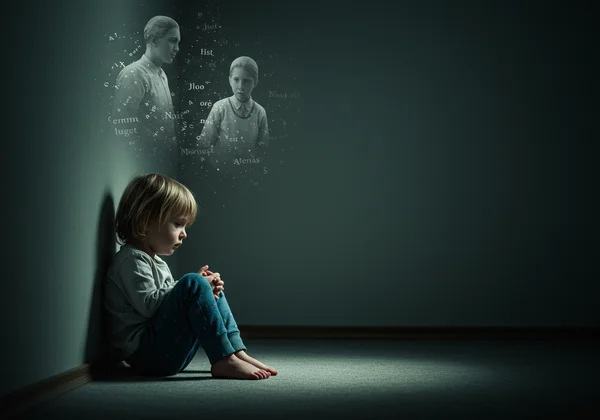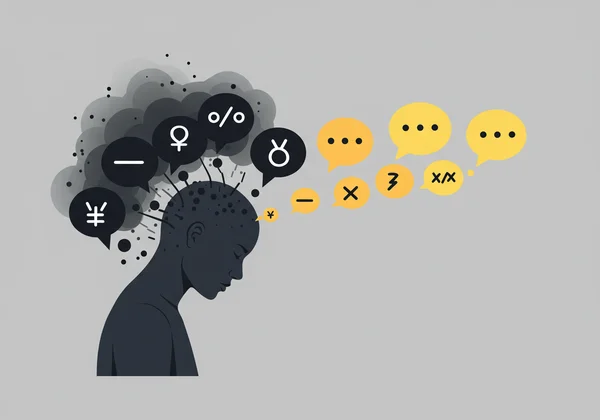AVPD Test & Rejection: Understand Why Fear Hurts and How to Cope
October 8, 2025 | By Elias Vance
The sting of rejection is a universal human experience. Yet, for some, it’s more than a sting—it’s a paralyzing blow that dictates every choice, conversation, and opportunity. This intense fear of criticism and disapproval can feel like an invisible cage, leaving you feeling isolated and misunderstood. If this resonates deeply, you may be wondering about the connection between this fear and Avoidant Personality Disorder (AVPD). Considering an AVPD test can offer initial clarity.
This article explores the profound link between AVPD and the fear of rejection. We will delve into the psychological roots of this sensitivity, identify how it shows up in daily life, and offer practical strategies to start managing it. Understanding the "why" behind the hurt is the first step toward empowerment. For a clearer picture of your own traits, you can always start a free assessment on our platform.
Understanding the Deep Roots of Rejection Sensitivity in AVPD
The overwhelming fear of rejection is a cornerstone of Avoidant Personality Disorder. It’s not simply shyness or a preference for solitude; it's a deeply ingrained pattern of avoidance driven by a perceived risk of judgment. This section uncovers why this emotional response is so powerful for those with avoidant personality traits.
What is Avoidant Personality Disorder (AVPD)? A Brief Overview
Avoidant Personality Disorder (AVPD) is a mental health condition characterized by pervasive feelings of social inadequacy, extreme sensitivity to negative evaluation, and significant social inhibition. People with AVPD often desperately want to connect with others but are held back by an intense fear of being shamed or ridiculed. This isn't a choice; it's a protective mechanism that, unfortunately, leads to chronic loneliness and limits personal and professional growth. The core of AVPD is a conflict between the desire for intimacy and the overwhelming fear that prevents it.

The Psychology Behind the Pain: Why Rejection Hurts More with AVPD
For individuals with AVPD, rejection doesn't just feel bad—it feels catastrophic. This heightened response, known as rejection sensitivity, means that even minor slights can trigger intense emotional pain. Their brain may process social rejection with the same severity as physical pain. This is because their self-worth is often fragile and externally dependent, meaning they rely on others' approval to feel good about themselves. When that approval is withdrawn or even perceived to be at risk, their entire sense of self can crumble.
Early Experiences: How Childhood Shapes AVPD Rejection Sensitivity
The foundations of AVPD are often laid in early life. Childhood experiences of persistent criticism, rejection, or neglect from parents or peers can teach a child that they are inherently flawed or unlovable. This early conditioning creates a core belief that they are not good enough, and that others will inevitably see this "flaw" and reject them. As a result, they learn to avoid social situations altogether as a way to prevent the anticipated pain, creating a self-fulfilling prophecy that reinforces their isolation.

How Fear of Rejection Manifests in Daily Life & Signs of AVPD
This deep-seated fear isn't an abstract concept; it has tangible consequences that affect every aspect of life. Recognizing how it manifests is crucial for understanding whether you or someone you know might be struggling with these patterns. Understanding the practical impact can be the first step toward seeking clarity, perhaps by using an online avpd test as a starting point.
Recognizing the Signs: Hypersensitivity to Criticism and Social Avoidance
The most visible signs of AVPD are a direct result of this fear. A person with these traits may exhibit extreme hypersensitivity to criticism, interpreting neutral comments as negative and reacting with shame or anger. They will go to great lengths to avoid activities that involve significant interpersonal contact, such as turning down promotions, avoiding group projects, or declining social invitations. This isn't because they don't want to participate, but because the potential for judgment feels too threatening to bear.

Impact on Relationships, Work, and Self-Esteem
The ripple effects of this avoidance are vast. In relationships, individuals with AVPD may struggle to be vulnerable or express their true feelings, only entering into relationships if they feel certain of being liked and accepted without criticism. At work, they might be seen as unmotivated or disinterested, when in reality they are paralyzed by the fear of making a mistake. Over time, this constant avoidance erodes self-esteem, confirming their internal belief that they are inadequate and incapable of fitting in.
Is it Social Anxiety or AVPD? Understanding the Differences
Many people wonder, do I have social anxiety or AVPD? While there is significant overlap, the core distinction lies in the underlying self-perception. A person with Social Anxiety Disorder (SAD) fears specific social situations due to a fear of embarrassment. In contrast, a person with AVPD has a more pervasive sense of personal defectiveness and worthlessness, leading them to believe they will be rejected in any social context. The avoidance in AVPD is broader and more deeply tied to a negative self-concept. Taking a confidential avpd screening tool can help you explore these nuances.
Practical Strategies to Cope with Rejection Sensitivity & Fear of Criticism
While the fear of rejection can feel all-consuming, it is not an insurmountable barrier. Learning to manage this sensitivity is a journey of small, courageous steps. These coping strategies are designed to help you build resilience and slowly reclaim your life from the grip of fear.
Cognitive Restructuring: Challenging Negative Thoughts
The fear of rejection is fueled by automatic negative thoughts ("They think I'm boring," "I'm going to say something stupid"). Cognitive restructuring is the practice of identifying, challenging, and replacing these distorted thoughts. Start by writing down a negative thought that arises in a social situation. Then, question it: What is the evidence for this thought? What is the evidence against it? What is a more balanced, realistic way of viewing this situation? This process helps weaken the power of your inner critic.

Gradual Exposure: Gently Facing Social Fears
Avoidance only makes fear stronger. Gradual exposure involves slowly and safely confronting the situations you fear. Start with something that feels only mildly uncomfortable, like making eye contact with a cashier or asking a stranger for the time. As you successfully navigate these small challenges without facing the catastrophe you predicted, you build confidence to tackle slightly more difficult situations. The key is to progress at your own pace, celebrating each small victory along the way.
Building Self-Compassion and Resilience
At the heart of managing AVPD traits is learning to treat yourself with kindness. Building self-compassion means acknowledging your pain without judgment and recognizing that struggling is part of the human experience. Practice mindfulness to observe your feelings without being overwhelmed by them. Remind yourself that your worth is not determined by others' opinions. This internal shift is fundamental to building the resilience needed to face the risk of rejection and realize you can survive it.
Moving Beyond the Fear: Your Path to Greater Connection
Embarking on the path to understand and manage the profound fear of rejection associated with AVPD is a truly courageous step. This journey isn't about erasing fear, but rather learning to navigate its presence, ensuring it no longer dictates the terms of your life. It's an empowering process that opens doors to more authentic connections and a deeper sense of self-acceptance.
To gain a deeper understanding of your specific traits, an AVPD test serves as a valuable first step in your journey of self-discovery. Taking the next step can provide valuable insights. Take our free avpd test today. It's completely confidential, based on scientific criteria, and designed to give you instant, clear results to help you understand yourself better.
Frequently Asked Questions About AVPD and Rejection
What triggers an avoidant personality?
An avoidant personality can be "triggered" by situations involving potential evaluation or criticism. This includes job interviews, public speaking, meeting new people, receiving feedback (even if constructive), or expressing a personal opinion. The underlying trigger is any situation where the individual feels their perceived flaws might be exposed, leading to rejection or ridicule.
How can I help myself if I have avoidant personality disorder?
Self-help begins with education and self-compassion. Learning about AVPD, practicing the coping strategies mentioned above (like challenging negative thoughts and gradual exposure), and focusing on building self-worth are crucial first steps. For deeper understanding and support, many find that a structured avpd self-assessment provides a helpful starting point before considering professional therapy, which is the most effective long-term treatment.
Is avoidant personality disorder the same as being shy?
No, they are not the same. Shyness is a common personality trait where a person may feel awkward or inhibited in new social situations but can typically warm up over time. AVPD is a pervasive, clinical-level disorder that involves intense feelings of inadequacy and an all-encompassing fear of rejection that severely impairs a person's ability to function socially and occupationally. The level of distress and life impairment is significantly higher in AVPD.
How do you know if you have avoidant personality disorder?
A formal diagnosis must be made by a qualified mental health professional. However, key signs include a persistent pattern of avoiding social and professional activities due to fear of criticism, an unwillingness to get involved with people unless certain of being liked, feeling socially inept or inferior to others, and being preoccupied with being rejected. If you recognize these patterns in yourself, taking a confidential AVPD quiz can be an informative and private first step in your journey of self-exploration.